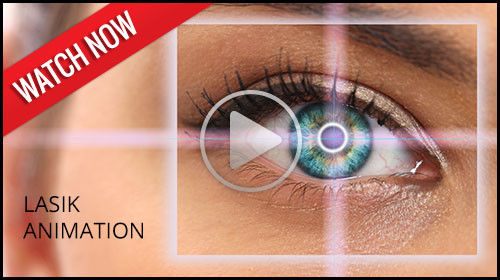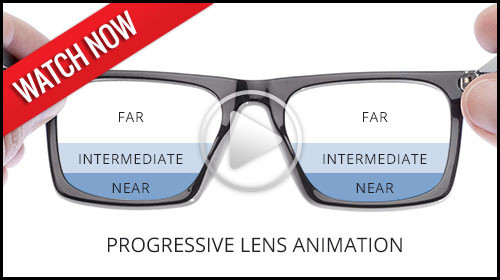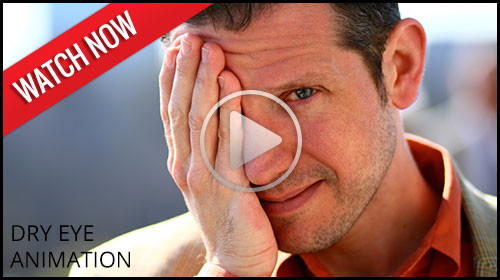Comprehensive Eye Exams
Your Sight Is Priceless!
Routine eye exams are important, regardless of your age or health. During the exam your eye doctor will not only determines if a prescription for eyeglasses is needed but also checks for common eye disease and overall health and function of your eyes.
How Often Should You Get Your Eyes Checked?
For patients 19 – 64 years of age we recommend eye exams be completed every 2 years, except for patients with diabetes, high blood pressure, and other disorders that have an impact on your vision. More frequent eye exams may be recommended to better care and monitor any changes.
For patients 65 and older, we recommend annual visits. Most of us will experience common age-related changes to our vision such as presbyopia or cataracts, but the risk of eye disease increases with age and we want to monitor these things more closely.
For patients 6 months – 18 years. We recommend all children should have their eyes examined at 6 months, again at age 3 and at the start of school. It is important to continue with annual exams to monitor their development and health.
What Happens During Your Exam?
Our Team of Optometrists and Optometric Technicians will lead you through your exam and take the time to answer any questions you may have along the way.
During your exam we will conduct a number of tests and procedures to examine and evaluate your visual acuity and eye function; such as peripheral vision, depth perception, and responsiveness to light. Our clinic incorporates a screening Ocular Coherence Tomography (OCT’s) and Clarus Retinal Imaging with every exam so that we may better assess your eye health. As many eye conditions and diseases can progress slowly, it is important to monitor for any changes that could be an early indication of disease.
*For information including symptoms and common signs of eye conditions and diseases that we monitor, please go to our Education Centre.
You will complete your appointment with a comfortable knowledge of your eye's health and an updated lens prescription. Please note contact lens fittings are not part of a regular eye exam. When booking, please make sure to notify our staff if you currently wear contacts or if you are interested in trying them.
Childrens Eye Exams
One of the most important factors to your child’s development is their sight. Some development issues can be detected at an early age such as Strabismus (Cross Eye) or Amblyopia (Lazy eye) and others such as hand-eye coordination, depth perception and signs of color blindness may present over time.
Some experts estimate that approximately 5-10% of preschoolers and 25% of school-aged children have vision problems. Often the increased visual demands within the classroom and school work will begin to make vision problems more detectable. The child may not even realize the difficulties or issues they are having are related to their vision.
Some indications a vision problem may occurring are:
- Squinting, rubbing or covering their eyes
- Losing their place while reading or unable to keep their place without using a finger
- Holding objects close to their faces, such as books or tablets.
- Sitting close to the television
- Having a short attention span for their age when required to focus on near or distance work. Avoiding it all together.
- A lack of concentration
- Needing to sit at the front of the class to see the board
- Headaches or irritability
Conditions that may emerge during the first few years in school include Myopia (Nearsightedness), Hyperopia (Farsightedness), and Astigmatism (distorted vision at all distances). Increased exposure to blue-light emissions from electronics has also led to an increase in eye conditions in children.
*For information including symptoms and common signs of eye conditions and diseases that we monitor, please go to our Education Centre.
Emergency Eye Exams
We understand that ocular emergencies can happen at any time. We offer immediate and urgent eye care for patients in emergency situations. If you have injured your eye, do not hesitate in seeking medical attention immediately. Optometrists are equipped to treat the majority of eye emergencies and in most cases, can see a patient more quickly than an emergency room visit.
Book an Appointment
An emergency exam should be completed if you are experiencing any of the following:
- Foreign material stuck in the eye
- Eye Trauma
- Eye Infections
- Scratched Eyes
- Sudden loss of vision in one or both eyes
- Flashes of light in peripheral or central vision
- Sudden onset or increase of “Floaters”
- Red or Painful Eyes
- Uncomfortable, itchy or irritated eyes.
- Lost or broken contact lenses or eyeglasses
Do NOT attempt the following before seeking professional assistance:
- Do NOT rub or press on an injured eye(s)
- Do NOT attempt to remove a foreign body that appears to be embedded in any part of the eye
- Do NOT attempt to remove a foreign body that is resting on the cornea (the clear surface of the eye through which we see)
- Do NOT use dry cotton or sharp instruments, such as tweezers, on the eye.
- Do NOT use any time of eye drop or medication that has not been directed by a medical professional
Low Vision Exams
Low Vision is considered a significant vision impairment that usually results from injury, serious eye disease, or advancing age. The vision loss, which is characterized by either reduced visual acuity or reduced field of view, cannot be fully corrected with glasses, contact lenses, medication, or surgery.
It can affect both adults and children, though it is more commonly seen in elderly patients who are at a greater risk of eye diseases such as Glaucoma, Macular Degeneration, and Cataracts, which are some of the most common causes of the condition.
Patients who may be experiencing low vision may have complete central or peripheral vision loss; blurry vision; poor low-light vision; loss of light sensitivity and/or loss of contrast. This makes daily activities such as watching TV, reading, writing, or driving difficult or impossible to complete.
Since the vision loss cannot be corrected, low vision requires adjustments to daily life and specialized low vision aids and techniques can allow patients to maximize their independence and quality of life.
Dr. Hayley Valgardson was the recipient of the Eschenbach Low Vision Award in recognition for her aptitude and passion towards helping patients with visual impairments and works with our low vision patients to counsel them on new techniques and visual aids that can help them accomplish tasks in their daily life.
Contact Lens Fittings
Contact lenses are a great alternative to wearing glasses but wearing the wrong type can cause damage to your eyes. It is important to have a proper fitting to ensure you have the best fit and type of contact lens for your eyes.
Here are few things you need to know.
1st – An eyeglass prescription is NOT a contact lens prescription. Please do not try to order contacts using your glasses prescription. It will not be correct.
2nd - You cannot get a contact lens prescription without a contact lens fitting. A fitting involves tests for your eyes that are not part of a regular eye exam. If you are interested in contact lenses, please make sure to tell our staff when booking to ensure you have enough time with the Optometrist.
3rd – During your fitting, the Optometrist will work with you to determine which type of contact is the best suited for you and your lifestyle. We offer fittings for all types of contact lenses. From daily wear, bi-weekly or monthly disposables to hard lenses such as RGP and Scleral Lenses.
4th – Contact lenses can do damage to your eyes if not worn or maintained properly. The Optometrist will provide education and training on the correct way to insert and remove your contacts, as well as proper maintenance directions.
Book an Appointment
Contact Lenses for ‘Hard to Fit’ Patients
It is not uncommon for patients to have difficulty wearing contact lenses; whether due to the natural shape of their cornea, the aftermath of a surgery, or certain eye conditions.
Some conditions that make contact wear more difficult are:
- Dry eyes
- Astigmatism
- Presbyopia
- Keratoconus
- Corneal Scarring
- Giant Papillary Conjunctivitis
- Pellucid Marginal Degeneration
- Post-Lasik or other refractive surgery
Rigid Gas Permeable (RGP) and Scleral Lenses
An option for some patients with difficult prescriptions or eye conditions that affect the shape of the cornea (Keratoconus) are RGP or Scleral lenses.
What is the difference between RGP and Scleral Lenses?
Scleral lenses have a bearing on the white part of the eye while RGP lenses only have a bearing on the Cornea. Scleral Lenses also have a thicker fluid reservoir and have practically no movement on the eye.
RGP Lenses are effective for many ‘hard-to-fit patients. The hard, oxygen permeable material lets the eye breathe and significantly reduces the chance of infection due to protein deposits that tend to harbor bacteria on soft lenses. RGP’s also hold moisture under the lens to keep eyes from drying out.
Scleral Lenses rest like a bridge over the cornea and therefore are commonly recommended for patients with corneal scarring and corneal conditions such as keratoconus (a condition that changes the shape of the cornea).
Driver's License Exams
Our office is happy to provide assistance with completing exams and additional testing such as Visual Field testing for BC drivers’ examinations.
The fees associated with each exam can vary based on the requirements laid out by RoadSafety BC or your employer and our staff are happy to answer any questions and assist you with your booking.
Laser Surgery Pre-Op And Post-Op Care
Are you interested in laser eye correction or lens replacement? Our Optometrists can answer your questions and help determine if you are a candidate for surgery. We have a great relationship with a number of local and Vancouver-based Ophthalmologists that we work closely with to provide your pre-operative evaluation and post-operative care.
Co-Management Of Eye Disease
Our team of Optometrists and Staff work closely with Ophthalmologists and Family Doctors to provide our patients with the best possible care. Whether conditions are seen during an exam in our office or patients are sent to us from another location.
Technological advances have given Optometrists the tools to diagnose and manage eye disease and conditions with greater precision. Diseases such as Glaucoma, Macular Degeneration, and Diabetic Retinopathy. Early diagnosis is key to treating and managing ocular disease.
Our clinic works with Family Doctors to monitor health conditions and provides a bridge between basic Optometric exams and Ophthalmological intervention for a number of eye conditions.
- Keratoconus
- Glaucoma
- Macular Degeneration
- Cataracts
- Retinal Disorders
- Diabetes
- Hypertension
- Auto-Immune Disease
- Patients taking high-risk medications (ex// Prednisone, Plaquenil©)
*For information including symptoms and common signs of eye conditions and diseases that we monitor for, please go to our Education Centre.





